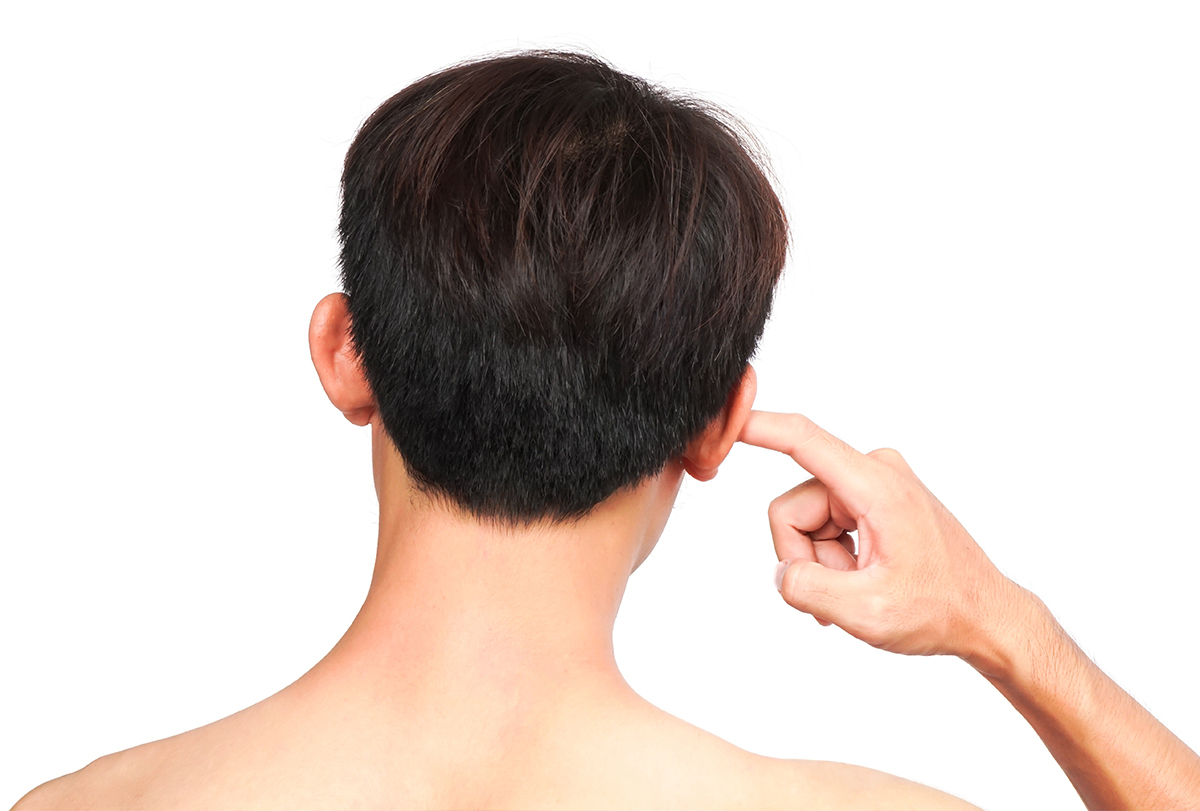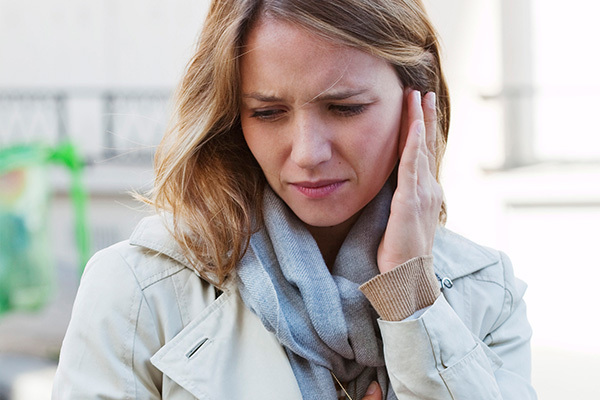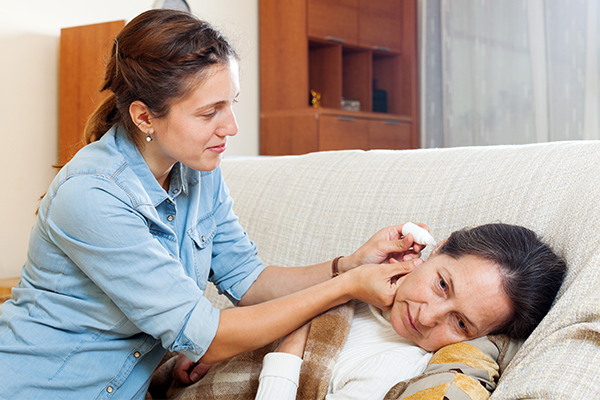In this article:
It is almost impossible to ignore an itch anywhere on the body and the problem becomes even more distressing if it occurs in areas that are hard to reach or view. An itch in your ears is a good case in point.

Common Causes of Itchy Ears
The most frequent cause of itchy ears is irritation in the lining of the outer ear canal, such as a form of eczema. (1) This can be caused by water getting trapped or an infection in the ear.
Once the itch has started, it can be hard to eradicate. A number of factors can make your ears itchy, which include:
- Skin conditions such as dermatitis or psoriasis (2)
- An allergic response to a new hair or skin product and earrings that contain nickel
- Fungal infections (3)
- Changes in atmospheric pressure
- Wax buildup, which can cause water to become trapped in the outer ear canal, consequently irritating the lining of the ear canal and causing inflammation, with the classic symptom of itchiness
Ear Cleaning: Dos and Don’ts

Your ears are self-cleaning organs that naturally expel the excess wax and other impurities settled in the ear canal. Thus, there is no need to use ear-cleaning tools such as cotton buds and Q-tips, which will only push the wax further inside and might even damage the delicate inner lining of the ear or the eardrum.
However, if you feel like your ears are clogged, unclean, or scratchy due to cerumen buildup, you can use your shower on a cool setting to irrigate the ear from the outside or go swimming. It is best if you consult your ear, nose and throat surgeon, who will use a microscope and gentle suction to remove the wax.
Preventive Measures for Itchy Ears
People who are prone to itchy ears should adopt the following measures to keep their ears clean, dry, and itch-free:
- The critical thing with itchy ears is to avoid getting water trapped in the ear and to have some mild steroid cream available to use at night. So, when you are swimming or showering, consider using earplugs if you are prone to itchy ears.
- You can also effectively keep your ear dry by placing a ball of cotton wool rubbed in Vaseline into the bowl of your outer ear.
- Regularly have your ears checked by an ear, nose and throat surgeon to make sure your ear canal is not blocked.
- A mild steroid cream applied to the ear canal at night is usually very effective in treating itchy ears. This can be bought over the counter at a pharmacy, although stronger creams will need a prescription from your ear, nose, and throat surgeon.
Do Any Food Items Lead to Itchy Ears?
Food allergy very rarely causes ear itching, although it is a common cause of skin eczema, especially in the young.
Relation Between Itchy Ears and Sore Throat
The throat and ear are inextricably linked by the same nerve supply, mainly the glossopharyngeal nerve. A sore throat can be felt like a sore ear, but the itchiness can be another way of interpreting this referred pain.
Itchy Ears in the Wake of a Common Cold
The common cold can cause disordered ear sensation, including itchiness, due to the inflammation of the nose. Such inflammation causes a blockage, which directly affects the function of the Eustachian tube.
The Eustachian tube runs from the back of the nose to the ears on each side. If the tube is blocked, then the ears become blocked, which can also be interpreted as itchiness.
Dizziness Related to Itchy Ears
The ears have two primary functions: hearing and balance sensation. Any problem in any part of the ear can trigger the general feeling that the ear is not working properly. This can cause slight hearing loss, mild dizziness, and tinnitus (ringing/noises in the ear).
Itchy Ears During Pregnancy
Pregnancy often sets off a condition called pregnancy rhinitis, wherein swelling and blockage occur in the nose. This can cause blockage of the Eustachian tube with subsequent ear blockage and itchiness.
Use Your Own Earphones
Itchy ears are not infective, so using someone else’s earphones is not a problem.
However, it is always better to use your own as everybody has their own set of bugs in the ears, even in healthy ears. You wouldn’t use a spoon that someone else has licked, would you?
Beneficial Oils for Treating Itchy Ears

Some oils can help relieve itchiness in the ear canals, just like they can help ease skin itchiness. Olive oil, for instance, has been found useful in this regard. (4)
Don’t Put Hydrogen Peroxide in Your Ears
It is not a good idea to use hydrogen peroxide in the ear, as it is quite a reactive and irritant compound.
You may use sodium bicarbonate ear drops, which help to disperse wax. Otherwise, oil-based liquids such as olive oil are well tolerated and help to soothe the irritated skin of the ear canal. (4)
Avoid Artificial Ear Jewelry
Ear itchiness when wearing ear jewelry is usually caused by contact dermatitis, mainly due to the nickel in the jewelry. In this situation, it is best to buy solid silver or gold jewelry.
Final Word
An itch in the ear can be extremely uncomfortable and impossible to ignore, but a lot of people make the condition worse by poking their ear with sharp objects, such as cotton buds, bobby pins, coat hangers, and toothpicks, to quell the itch.
As difficult it is to resist the urge to scratch, you must realize that your ear cavity is extremely sensitive, which can incur severe trauma through the abrasive rubbing action of invasive tools.
Moreover, the thrusting of these objects can push the naturally occurring cerumen (earwax) deep into the ear canal and even damage or perforate the eardrum. Thus, you have to be extremely gentle and cautious when handling the inside of your ear.
If the itch is persistent, consult an ENT specialist to determine the underlying cause and then seek appropriate treatment.
- Was this article helpful?
- YES, THANKS!NOT REALLY


